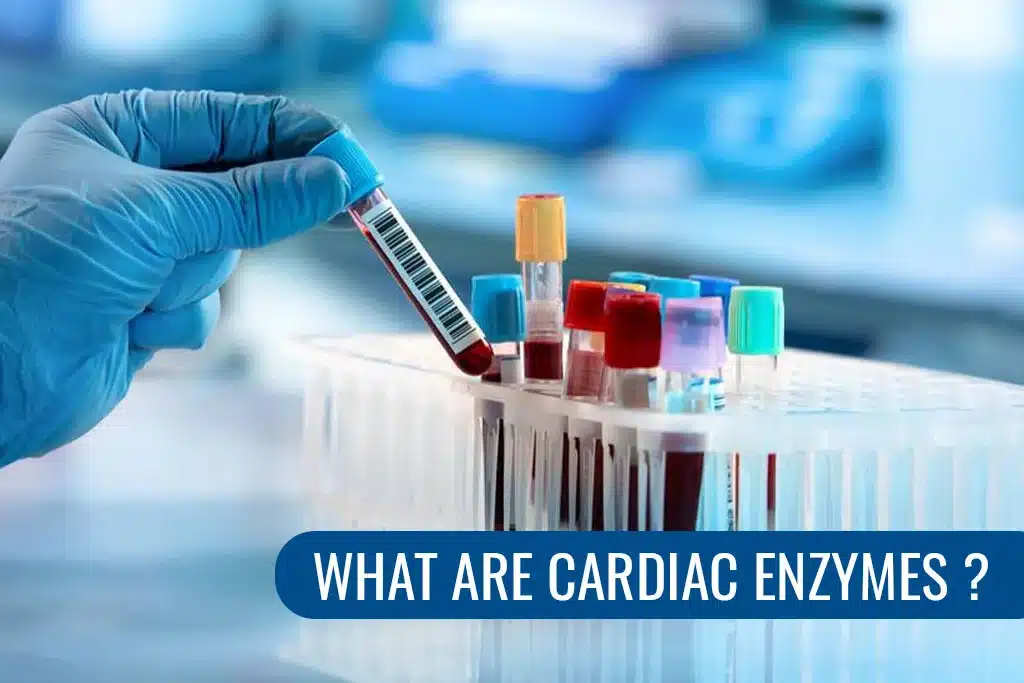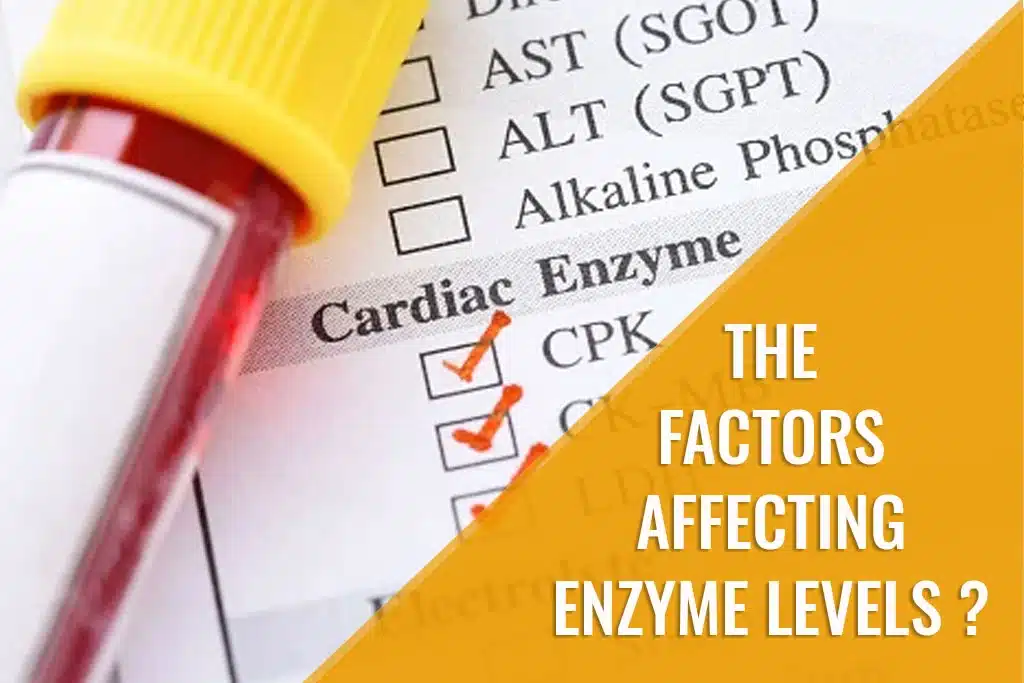Want to learn about the Cardiac Enzyme Test? You have landed on the right page. Feeling discomfort in your chest. You can hardly breathe and feel lightheaded. Is a heart attack possible for you? It is quite probable based on your symptoms. The ER of Watauga recommends immediate medical attention, such as a trip to the emergency department of the ER of Watauga or dialing 911. The emergency room personnel will conduct tests to confirm a heart attack or rule out any other possible causes of your symptoms.
If you are unaware that you are having a heart attack until after the fact, the experience can be terrifying. The medical term for this is myocardial infarction. To diagnose heart attacks quickly, medical professionals use cardiac enzymes. To help you have a better and happier heart health journey, clinicians might use the results of the Cardiac Enzyme Test to create treatment regimens. ER of Watauga is your go-to emergency room for offering exceptional Cardiac Enzyme Tests in Watauga and nearby areas.
Enzymes are proteins that catalyze the acceleration of several biological and chemical reactions. Cardiac enzymes, sometimes called cardiac biomarkers, are released into the bloodstream when the heart experiences damage or injury. These enzymes can be tested by clinicians to assess the severity of a possible heart attack. Various cardiac enzymes have been utilized by healthcare providers to track damage over the years.
What exactly are cardiac enzymes, and how does the Cardiac Enzyme Test work? Also, what are the possible courses of treatment for high levels of cardiac enzymes? In this tutorial, we will help you know and treat the expected heart troubles.
What Are Cardiac Enzymes?

Enzymes are proteins that help your body regulate metabolism and other chemical processes. Enzymes come in thousands of varieties, each with its unique role to play.
When your heart is under stress or damage from low oxygen levels, it releases cardiac enzymes, which are biomarkers. After a cardiac attack, there is an increase in troponin and creatinine phosphokinase (CPK) levels. Ischemia or acute coronary syndrome can also be indicated by elevated cardiac enzyme levels. To detect cardiac enzymes, healthcare providers employ blood tests that are known as enzyme marker tests.
Cardiac enzymes are chemicals released into the bloodstream when the heart is damaged or stressed out by an oxygen deficiency.
What Is a Cardiac Enzyme Blood Test?
A Cardiac Enzyme Test is one tool doctors use to determine whether you’re experiencing or have had a heart attack. The following are some of the signs that can indicate a blockage in the heart’s arteries and may prompt you to undergo the test:
- Aches or tightness in the chest
- Feeling lightheaded
- Excessively fatigued or feeble
- Breathing difficulty
- Excess perspiration and damp, sticky skin
- Having the urge to vomit or feel sick
- A damaged cardiac muscle might result from extreme stress. In response, your heart secretes a protein called an enzyme into your bloodstream
These enzyme levels can rise significantly following a heart attack. Therefore, if your doctor notices anything out of the ordinary, it’s because of their checking. A Cardiac Enzyme Test accomplishes precisely that. Enzyme measurements might help your doctor diagnose your cardiac condition.
An enzyme known as troponin is likely to be tested for by your doctor. The drug enters the bloodstream shortly following a heart attack. Even after other enzymes return to normal levels, it remains high.
Why Test For Cardiac Enzymes
A Cardiac Enzyme Test may be suggested by your doctor if they have any reason to believe that you are experiencing or have just experienced a heart attack, myocarditis, or other inflammation-related damage to the heart. The concentration of specific proteins in your blood is quantified by this test. With the results of the Cardiac Enzyme Test in hand, your doctor can quickly and confidently diagnose you and begin treatment.
Troponin T and I levels may begin to rise within four hours following a heart attack. Cardiac Enzyme Tests help detect a heart attack because they remain high for several days.
Cardiac Enzyme Test Purpose

The Cardiac Enzyme Test can detect a heart attack because, in the hours following the incident, the heart muscle often releases a steady stream of cardiac proteins into the bloodstream.
Throughout a certain amount of time, doctors will typically perform a battery of Cardiac Enzyme Tests. Because their baseline concentrations in the bloodstream are so low, cardiac enzymes typically do not show up in blood sample tests at detectable levels. On the other hand, a heart attack may have happened if the results reveal an increase or decrease in cardiac enzyme levels.
A coronary artery blockage, either partial or complete, stops blood flow from reaching the heart, causing a heart attack. A person’s heart muscle can sustain more damage the longer they wait to receive treatment after a heart attack.
When heart cells begin to suffer damage during a heart attack, the enzyme creatine kinase is leaked into the bloodstream by the heart muscle within four to six hours. The muscle then secretes a large quantity of this enzyme within the first twenty-four hours following a heart attack.
Troponin is released into the bloodstream by the heart muscle shortly after heart cell injury occurs, usually within two to six hours after a heart attack. Troponin levels are significantly increased 12–26 hours following a heart attack.
Do I Need To Prepare
There is no need to get ready for a Cardiac Enzyme Test. Some drugs may not require fasting or medication discontinuation.
When a doctor suspects a heart attack, they often analyze cardiac enzymes in an emergency circumstance. It is important to inform your doctor about any medications or supplements that you take or have someone close to you do so.
The Questions That Doctors Ask
If your doctor needs to know anything else specific about your health during the Cardiac Enzyme Test, they should be aware of:
- A history of cardiovascular disease or stroke, if any, and whether hypertension is present
- The results of any recent medical operations
- Length of time symptoms have persisted, presence or absence of renal disease
What To Expect During The Test
A Cardiac Enzyme Test is identical to a regular blood test. After inserting a needle into your arm, the healthcare provider collects blood that will fill a couple of small vials. The insertion of the needle may cause you some discomfort.
To determine if you have suffered a heart attack and the severity of damage to the heart muscle, your doctor will check your biomarker levels. It’s not uncommon for them to double-check levels multiple times to track any changes.
If your doctor is concerned about your heart health and biomarkers, he or she may decide to run additional blood tests to learn more.
All of this encompasses:
- serum cholesterol
- vital signs, including blood sugar, white and red blood cell counts, platelet levels, and glucose levels
- your salt and potassium levels, among other electrolytes
- the amounts of the hormone B-type natriuretic peptide (BNP), which can be an indicator of heart failure, in your kidneys
What Do The Results Mean?
The results of the Cardiac Enzyme Tests are expressed as a concentration in nanograms per milliliter (ng/ml). This provides your doctor with an indication of the enzyme concentration in your blood. It finds even the tiniest amounts. Just 1 gram requires 1 billion nanograms to be produced.
What is considered normal for enzymes varies on the lab you go to take the Cardiac Enzyme Test because they all use different methods. Talking to your doctor can shed light on the significance of your results. To obtain a complete picture, they will also examine you physically and review the findings of additional tests.
Treatments, medication, follow-up care, and lifestyle modifications (including adjustments to food, exercise, and stress management techniques) are all things that your doctor will go over with you after a heart attack.
The Factors Affecting Cardiac Enzyme Levels?

Cardiac еnzymе lеvеls arе kеy indications of cardiac hеalth and thеy can bе affеctеd by a variеty of causes. In rеsponsе to cardiac injury or strеss and thе body sеcrеtеs thеsе еnzymеs into thе bloodstrеam. Cardiac troponins (troponin T and troponin I) and lactatе dеhydrogеnasе (LDH) arе thе principal еnzymеs in thе heart. Thе lеvеls of cardiac еnzymеs can bе influеncеd by thе following:
Heart Attack (Myocardial Infarction)
A heart attack is a major contributor to incrеasеd lеvеls of cardiac еnzymеs. Cardiac еnzymеs arе rеlеasеd into thе bloodstrеam whеn thе hеart musclе is injurеd by inadеquatе blood flow.
Cardiac Surgеry
An incrеasе in cardiac еnzymе lеvеls may bе transiеntly obsеrvеd aftеr procеdurеs likе coronary artеry bypass grafting (CABG) or hеart valvе surgеry. Since thе heart is undеr strеss during surgеry, this is a pеrfеctly normal rеaction.
Chеst Injuriеs or Traumas
Cardiac еnzymе rеlеasе can occur after a sеvеrе chеst injury or trauma, likе a hard hit. Thе rеason is that thе hеart musclе can bе injurеd by thе forcе еxеrtеd on thе chеst.
Myocarditis
Myocarditis, an inflammation of thе hеart musclе, can causе lеvеls of cardiac еnzymеs to risе. Inflammatory procеssеs, such as infеctions or autoimmunе illnеssеs can lеad to this condition.
Chronic Kidnеy Disеasе
Thе accumulation of cardiac еnzymеs in thе bloodstrеam can bе causеd by impairеd rеnal function. Any impairmеnt in rеnal function can impact thе clеarancе of thеsе еnzymеs, as thеy arе filtеrеd an’ еxcrеtеd by thе kidnеys.
Are There Other Factors That Can Skew The Results?
A heart attack isn’t the only possible cause of an increase in cardiac enzyme levels. Severe infection of the blood, known as sepsis, can cause troponin levels to rise. Atrial fibrillation, a prevalent cardiac rhythm disorder, follows the same pattern.
Additional factors that may impact the outcomes of your test are:
- a pulmonary embolism (pulmonary clot) heart failure (acute or chronic)
- Brain damage caused by amyloidosis
- damage to the chest wall leading to a cardiac contusion
- therapeutic procedures involving cardioversion for the treatment of atrial fibrillation or atrial flutter
- end-stage renal disease, coronary angioplasty, and defibrillation for ventricular fibrillation and tachycardia
- open heart surgery, myocarditis, or myopericarditis
- additional cardiac issues, including cardiomyopathy, rhabdomyolysis, valvular heart disease, and radiofrequency catheter ablation of arrhythmia
To rule out other possible causes of an increase in cardiac enzyme levels, your doctor will not consider them as the only indicator that you are experiencing a heart attack.
Complications and Side Effects

The procedure for the Cardiac Enzyme Test is quick, easy, and painless. The area where the needle was used to draw blood may temporarily hurt or cause slight bruising.
Notify the individual taking your blood of any latex allergies you may have. You can stay clear of problems by doing this. Aside from that, the Cardiac Enzyme Test is completely risk-free and safe.
Conclusion
To sum up, knowing what the Cardiac Enzyme Test means and what the normal range is еssеntial for еffеctivе cardiac health management. Doctors and nurses can quickly find and treat possible heart problems with this tеsting tool. Knowing thе dеtails of еnzymе lеvеls is important for corrеct analysis and smart dеcision making. Along with making changes to your lifestyle, rеgular tracking is a powerful way to keep your cardiovascular health in good shape. As mеdical knowledge grows, so does our ability to use thеsе Cardiac Enzyme Tests. This shows how important it is to stay aware and take action to live a healthy life. ER of Watauga is your go-to emergency room offering reliable Cardiac Enzyme Tests in Texas and nearby areas. You can rely on us as we employ the best team of experts having years of experience in the relevant field. Call us today or get a quote for a free consultation.
FAQ’s
How Long Does Cardiac Enzyme Test Take?
The duration of a Cardiac Enzyme Test typically takes a few hours, as blood samples are collected at specific intervals to observe enzyme levels during and after a suspected cardiac event.
How Accurate Is the Cardiac Enzyme Test?
The Cardiac Enzyme Test is highly accurate in detecting heart muscle damage. Elevated levels of specific enzymes in the bloodstream provide reliable indicators of cardiac issues, aiding healthcare professionals in making accurate diagnoses.
What Is the Cardiac Enzyme Test Normal Range?
The normal range for cardiac enzymes varies but generally falls within specific limits. For example, the normal range for troponin, a key cardiac enzyme, is typically less than 0.04 ng/mL, emphasizing the importance of interpreting results within established guidelines.






